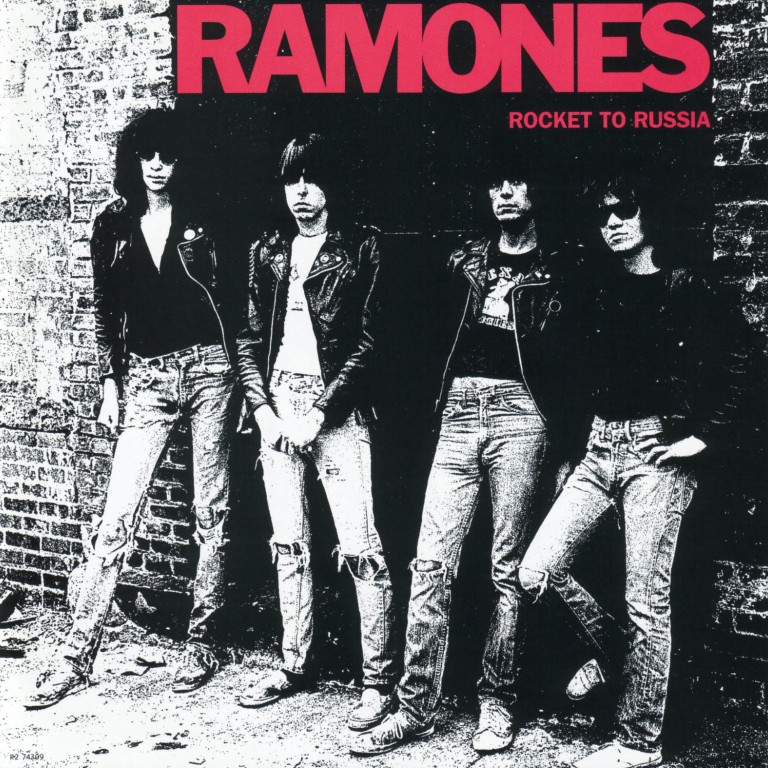
Rewind album: Rocket to Russia, by The Ramones
It's amusing to think of The Ramones - Joey, Johnny, Dee Dee and Tommy - as brothers. They were, for one, the snarling, dysfunctional response of a poverty and crime-riddled New York City in the mid-1970s to Utah's wholesome Osmonds.
The Ramones
Sire Records
It's amusing to think of The Ramones - Joey, Johnny, Dee Dee and Tommy - as brothers. They were, for one, the snarling, dysfunctional response of a poverty and crime-riddled New York City in the mid-1970s to Utah's wholesome Osmonds.
And in reality, the family moniker (a misappropriation of Paul Ramon, a pseudonym used by Beatle Paul McCartney early in his career) was an affectation adopted to suggest unity of purpose: the four original members were unrelated.
They all hailed from the same middle-class neighbourhood of Queens. But even when dressed alike in the band's uniform of bowl haircuts, black leather jackets and ripped skin-tight jeans, never could a band of brothers have been less unified and more varied in personalities.
Lanky, awkward and gentle singer Joey (real name Jeffrey Hyman) had spent part of his teens in a psychiatric hospital due to the severity of his obsessive-compulsive disorder. Guitarist Johnny (John Cummings) was a violent thug turned malevolent right-wing control freak. Heroin-addicted occasional male prostitute Dee Dee (Douglas Colvin), on bass, was the clown, while level-headed Tommy (Thomas Erdelyi) backed up the motley misfits on drums.
Despite their differences, the band created a primitive, minimalistic proto-punk sound - always played with exhilarating intensity and velocity - that was greater than the sum of its parts, influencing wannabe rockers from Los Angeles to London. Without The Ramones, could there have been the Sex Pistols, Green Day, The Clash or Nirvana?
Uncompromising speed was what the band were truly about, and 1977's was their third studio album delivered in less than two years. It was also their bestselling outing in the US (achieving a modest 49 on the Billboard 200).
Despite the band's reputation for embracing nothing more musical than adrenalin and attitude, exhibits subtle melodic influences, most notably from surf rock and 1960s pop. is a cover of an original song by the Trashmen that reached No4 in the US in 1963, while , written and originally recorded by soul artist Bobby Freeman in 1958, was a much-loved hit for the Beach Boys in 1965.
Self-penned tracks on include some of The Ramones' best-known, including the stomping , foot-tapping favourite and no-nonsense . Side one closes with the tongue-in-cheek .
The foursome continued to make music for close to two decades, but personal relationships were already fraying at the time of 's release. Tommy left the band not long after, saying the bickering, mind games and ugly spats had driven him to the edge of sanity.
Even so, in 2002, a year after 49-year-old Joey's death from lymphoma, and when The Ramones were inaugurated into the Rock And Roll Hall of Fame, Tommy thanked the singer in his speech, saying the founding four were "truly brothers".
